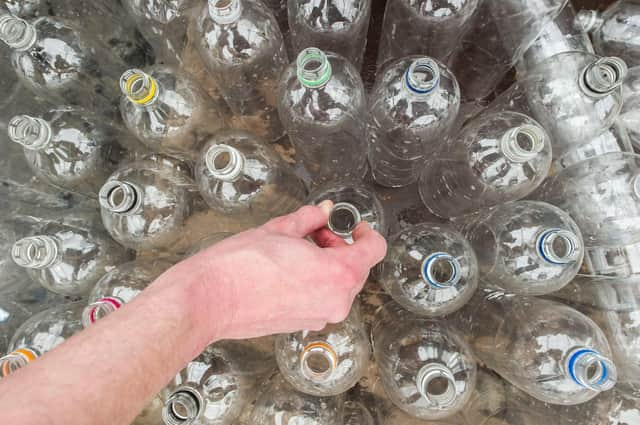The Deposit Return Scheme turned into a political football to everyone's loss - Dr Richard Dixon


The tabloids like to call the Deposit Return Scheme Lorna Slater’s scheme. Ms Slater has indeed been in charge of delivering the scheme, but it was an SNP proposal and all the legal and early practical set up was done by the SNP before the last election.
The DRS was first promised in 2017 and is now on its fourth delay. If it really does start in October 2025 it will have been eight years in the making, five years since the laws need to make it happen were passed and it won’t be collecting glass bottles.
Advertisement
Hide AdAdvertisement
Hide AdThese kinds of scheme are common in Europe, and the US, and most have been running successfully for many years. They are a popular and polling in Scotland showed strong support here too.
Our DRS was supposed to start in August. Iceland, Lidl, Sainsburys and others have already been trialling machines to collect your cans and bottles, waste collectors have built plants to sort the materials and many smaller retailers have made changes to get ready for the scheme.
The first bit of political football was during the SNP Leadership race. Opponents of the scheme worked out that the DRS was now associated with the Greens more than the SNP and so it was easy to make it an issue between the three candidates. Ash Regan and Kate Forbes couldn’t wait to stick the knife into their own government’s plans, the former saying she would scrap it, the latter that she would put it on hold. More reasonably, Humza Yousaf said he would give a temporary exemption for small businesses.
I predicted trouble from the UK Government in February of last year and, sure enough, at the last minute, having already dragged their feet over important changes to tax rules, they used the Internal Market Act to stop glass being included in the scheme. Despite having six years to raise this issue and their own environment spokesperson in Scotland previously supporting the inclusion of glass.
Several schemes in Europe have started without glass and then added it later. Several years ago, I was at a presentation in the Parliament from someone from the Netherlands explaining how complex and expensive it was to add glass later.
The government of Wales says it is planning to fight it out with the UK Government over including glass in their scheme.
Before Brexit the UK Government would not have been able to stop the Scottish Government proceeding as planned, it is the post-Brexit Internal Markets Act which gives them broad powers to derail plans in Scotland.
Devolution has let Scotland do things differently, from free prescriptions and free personal care for the elderly to tighter air quality standards and tougher climate targets. The war over the DRS shows that if any of these were new proposals today they would be under threat of being blocked by the UK Government.